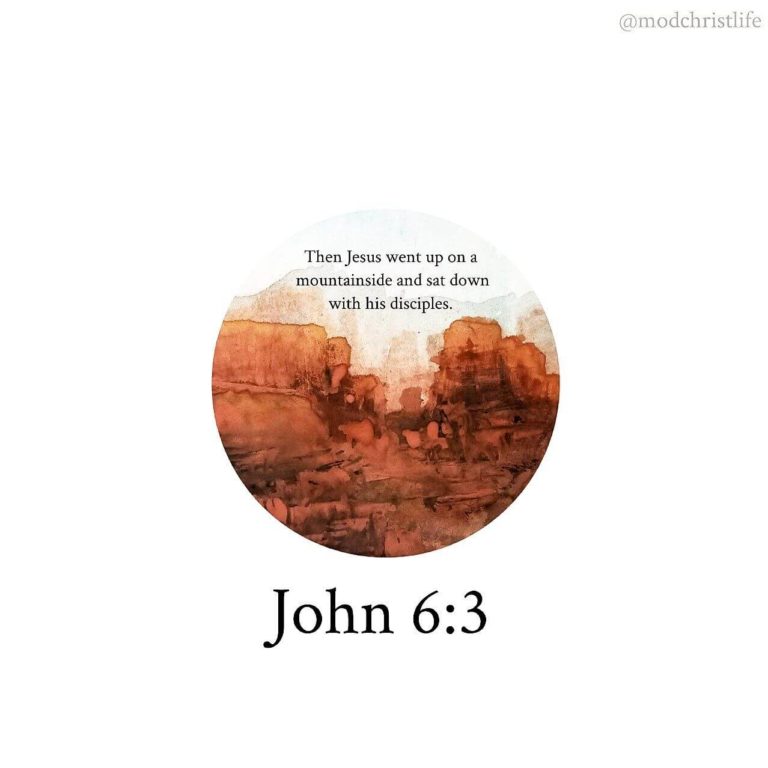
3 Then Jesus went up on a mountainside and sat down with his disciples.
4 The Jewish Passover Festival was near.
5 When Jesus looked up and saw a great crowd coming toward him, he said to Philip, “Where shall we buy bread for these people to eat?”
6 He asked this only to test him, for he already had in mind what he was going to do.
7 Philip answered him, “It would take more than half a year’s wages to buy enough bread for each one to have a bite!”
8 Another of his disciples, Andrew, Simon Peter’s brother, spoke up,
9 “Here is a boy with five small barley loaves and two small fish, but how far will they go among so many?”
10 Jesus said, “Have the people sit down.” There was plenty of grass in that place, and they sat down (about five thousand men were there).
11 Jesus then took the loaves, gave thanks, and distributed to those who were seated as much as they wanted. He did the same with the fish.
12 When they had all had enough to eat, he said to his disciples, “Gather the pieces that are left over. Let nothing be wasted.”
13 So they gathered them and filled twelve baskets with the pieces of the five barley loaves left over by those who had eaten.
14 After the people saw the sign Jesus performed, they began to say, “Surely this is the Prophet who is to come into the world.”
Reflections: Insights on John 6:3-14
This is a very popular miracle performed by Jesus which is recorded in each of the four Gospels. When reading this story, we can see several characteristics within Christ:
1. Compassion
When Jesus saw the crowd of thousands, he was moved to take care of their needs, both physical and spiritual.
2. Divine Power
How does 5 loaves of bread + 2 fish = feeding 5,000 people? It’s through the very divine nature and power of our Lord Jesus Christ. Through God’s power and might, as long as He wills it, nothing is impossible.
3. Unity
Jesus could have sent the crowds away to get their own food, but instead of doing that, he had them sit down, gave thanks, and broke bread with them. It is important to God and Jesus for the church to be united as one body.
4. The Importance of the Spiritual
Later on in the same chapter, Jesus references this miracle and says “Do not work for food that spoils, but for food that endures to eternal life”. He also calls himself “the bread of life”. Using the physical importance of food sustaining us, Jesus illustrates the greater importance of seeking spiritual food to sustain our very spirits, an action that has both eternal worth and value. It is only up to us to hunger for this very food.
.